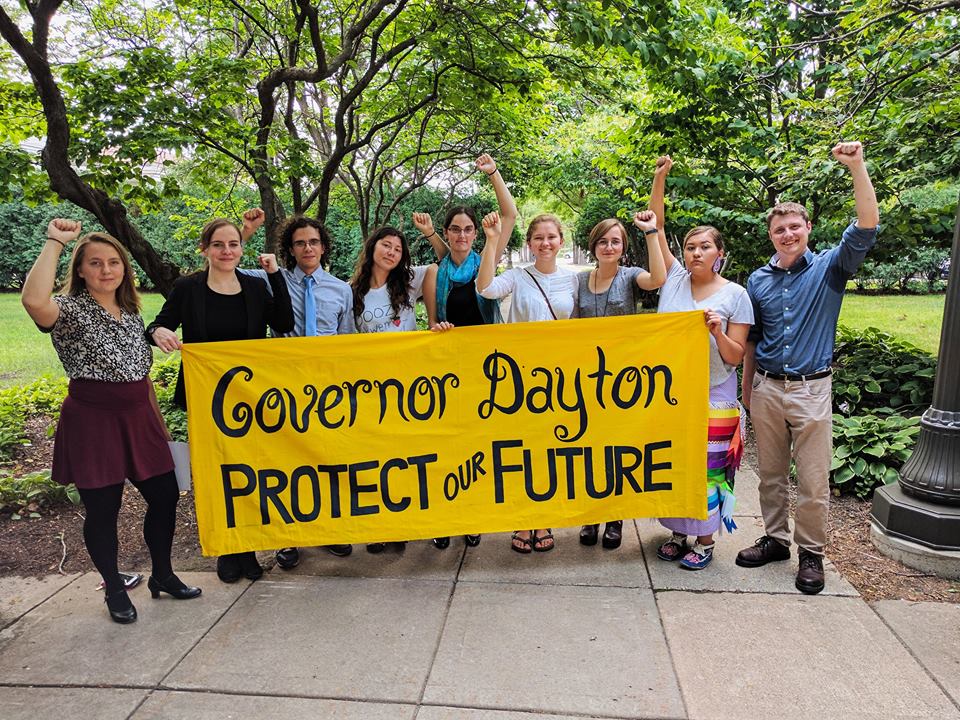Two Pennsylvania children are suing the Trump administration over its environmental policies, claiming that its deregulatory agenda is based on “junk science” that knowingly increases the “damages, death and destruction” of climate change.
The case adds to a growing list of attempts to use the judicial branch to compel action on climate change, from similar youth-led cases against the federal government to lawsuits against fossil fuel companies by coastal communities.
“The federal government has relied on junk science to implement reckless climate change policies in the face of indisputable U.S. and international scientific consensus,” the Clean Air Council, who filed the lawsuit on behalf of the children, said in a press statement on Monday. “These acts of deliberate indifference are increasing U.S. contributions to climate change, thereby increasing the frequency and intensity of its life-threatening effects, and violating the constitutional rights of all U.S. citizens.”
The lawsuit asks the U.S. District Court to halt any Trump administration action that would increase greenhouse gas emissions, thus exacerbating the consequences of climate change. Actions that would fall under this category are numerous, from the Environmental Protection Agency’s repeal of the Clean Power Plan, which sought to limit greenhouse gas emissions from power plants to the Department of the Interior’s repeal of a regulation that would have limited the production of methane from the oil and gas industry.
For youth plaintiffs to seek relief from the judicial branch on the issue of climate change is unique, but not without precedent. The case in Pennsylvania builds on a legal theory being tested in federal court already, specifically the case of Juliana v. United States, a group of 21 youth plaintiffs who are suing the federal government over its failure to take sufficient action on climate change. Unlike the Juliana case, however, the lawsuit in Pennsylvania is narrower, focusing just on Trump administration regulations that would endanger the environment and climate.
“The Clean Air Council case is taking the legal theories pioneered in Juliana and applying them to a narrow set of facts related to specific rollbacks of the Trump administration,” Meg Ward, a spokesperson for Our Children’s Trust, the nonprofit group behind the Juliana case, said in a press statement. “By contrast, the Juliana case challenges not just the Trump Administration’s ongoing illegal actions, but also the collective unconstitutional acts of prior administrations that have created the climate danger our youth plaintiffs face today.”
Youth plaintiffs argue that because the consequences of climate change are likely to worsen in the future, younger generations will shoulder the overwhelming burden of actions taken today. Carbon dioxide can trap heat for years in the atmosphere, meaning that even if carbon emissions were zeroed out today, a certain amount of warming would continue into the future. Scientists have underscored the ways climate change intensified a number of extreme weather events in recent months, from hurricanes like Harvey and Maria to wildfires in California.
In November of 2016, a federal court in Oregon ruled that the plaintiffs in Juliana had sufficient standing for the case to move forward. The Trump administration has fought the case at every turn, however, filing an appeal in June asking for the Ninth Circuit Court of Appeals to reverse the lower court’s decision to allow the case to proceed. The Ninth Circuit has temporarily paused proceedings in the case while it considers this request.
Across the Atlantic, six Portuguese children have been attempting to raise funds to launch a similar lawsuit, which they hope would force 47 European countries to take action on climate change. Climate lawsuits in Europe already have a track-record of success, with a court in the Netherlands ruling in June of 2015 that the Dutch government had knowingly ignored the dangers of climate change. That decision spurred similar lawsuits challenging national government’s inaction on climate change in Belgium and Ireland.


